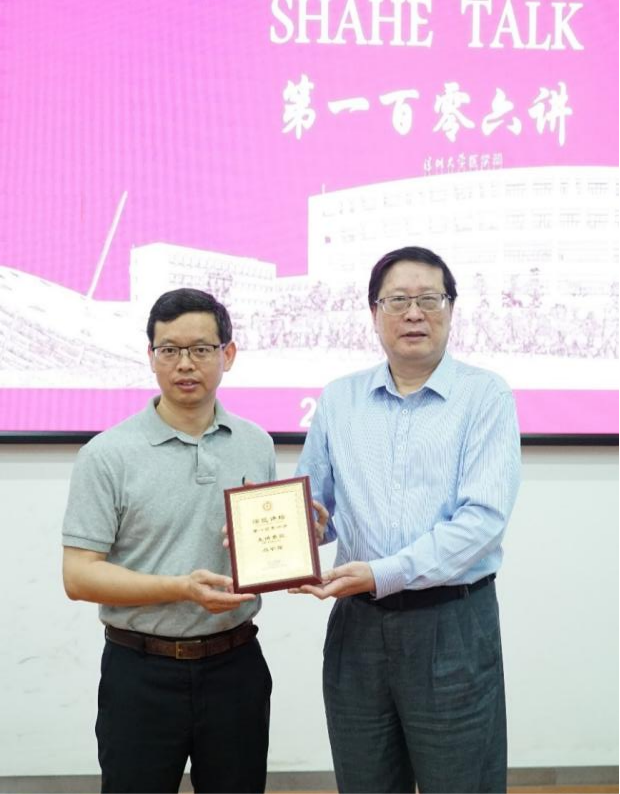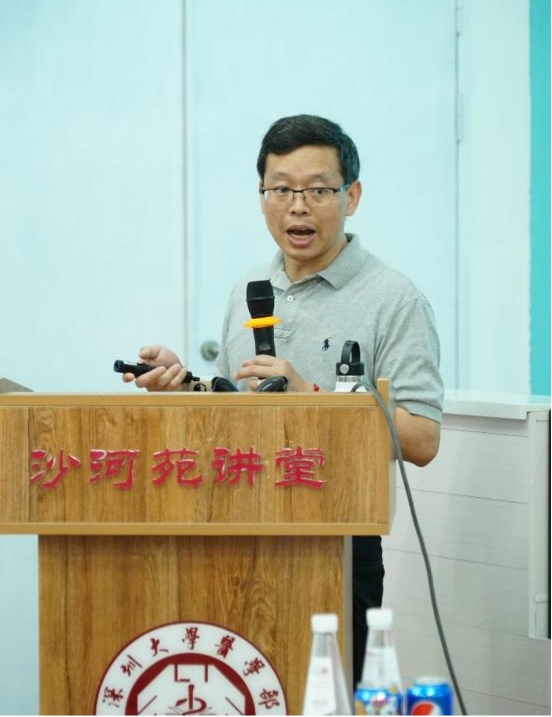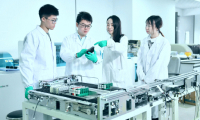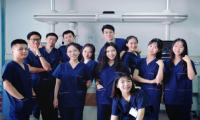Shenzhen University Medicine Forum: Explore viral infection to probe fundamental roles of protein deamidation
On April 25, 2024, we were delighted to host Professor Pinghui Feng from the University of Southern California, USA, at the Lihu Campus of Shenzhen University. Upon invitation by Professor Wei-Guo Zhu, Director of the Carson International Cancer Center at Shenzhen University, Professor Pinghui Feng gave the 106th lecture of the Shenzhen University Medicine Forum titled "Explore viral infection to probe fundamental roles of protein deamidation."

In his talk, Professor Feng outlined the mechanism of protein deamidation, which is an important protein modification that involves the removal of amino acid residues from proteins. This process typically occurs on glutamine and asparagine residues, where the amide group (-CONH2) of the amino acid is hydrolyzed, converting it into a carboxyl group (-COOH), resulting in the deamidated form of the amino acid. Protein deamidation is either spontaneous or enzyme-mediated: Spontaneous deamidation is often influenced by local environmental conditions such as pH, temperature, and ion concentration, while enzyme-mediated protein deamidation requires specific protein enzymes for regulation. These enzymes may be regulated by internal or external factors, such as changes in protein structure, the activation of intracellular signaling pathways, or a viral infection. Professor Feng also explained how his team discovered that in tumor cells, an enzyme called carbamoyl-phosphate synthetase, aspartyl transcarbamoylase, and dihydroorotase (CAD) can catalyze the deamidation of RelA, an important component of the NF-kB pathway, at amino acid N64 and N139, thereby increasing aerobic glycolysis in cells and enhancing tumor cell survival. Finally, Professor Feng introduced his research progress on protein deamidation during the immune response to SARS-CoV-2 infection. After the presentation, attendees actively asked questions, and Professor Feng provided detailed and vivid answers, creating a lively and engaging atmosphere.

Brief introduction of the Speaker
Professor Pinghui Feng obtained his Bachelor's degree from Hunan Normal University, Master's degree from the Wuhan Institute of Virology, Chinese Academy of Sciences, and PhD from the University of Missouri (USA). He was then awarded a postdoctoral fellowship at Harvard Medical School. Dr. Feng currently serves as a professor at the School of Dentistry, University of Southern California (USA), specializing in infection and immunology. He is the recipient of the NIH Outstanding Contributions Award (R35), and the Hundred Talent Program of Hunan Province. Professor Feng has led over 20 projects funded by NIH, National Cancer Institute (USA), and National Institute of Dental and Craniofacial Research (USA). He has made numerous original discoveries in protein deamination function in viral infection and immune response, as well as cancer and infectious disease immunotherapy. He has published more than 60 papers in internationally renowned journals such as Nature Cell Biology, Cell Host & Microbe, Molecular Cell, Nature Microbiology, Autophagy, the Journal of Experimental Medicine, and PNAS. Professor Feng holds one international patent and serves as an Associate Editor for PLOS Pathogens and the Journal of Medical Virology, and is an Editorial Board member for the Journal of Virology, and a Guest Editor for PNAS.








用户登录
还没有账号?
立即注册